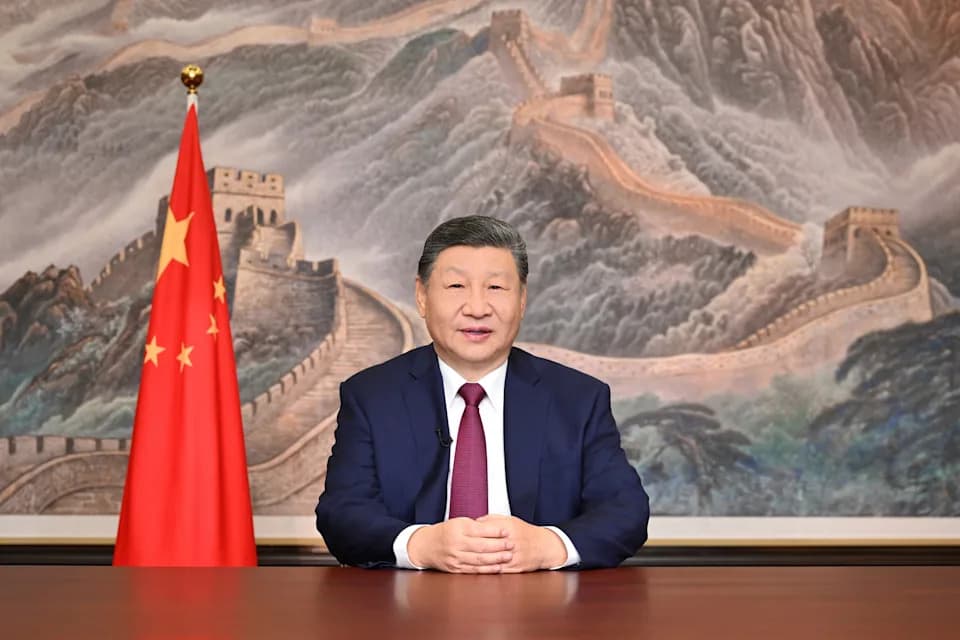Japan scrambled jets after detecting a suspected Chinese drone near Yonaguni and reported Chinese coast guard vessels in waters around the disputed Senkaku/Diaoyu islands, escalating tensions with Beijing. The incidents followed comments by Prime Minister Sanae Takaichi suggesting Japan might act if China used force against Taiwan, prompting strong Chinese diplomatic responses and travel advisories. The advisories hit Japanese tourism and retail stocks and raised concerns about supply-chain leverage in rare earths. Tokyo sent a senior diplomat to Beijing, but no immediate de-escalation was reported.
Japan Scrambles Jets After Suspected Chinese Drone Near Yonaguni as Tensions With Beijing Escalate

Japan Scrambles Jets After Suspected Drone Near Yonaguni
Tokyo said it scrambled military aircraft on Saturday after detecting what officials believe was a suspected Chinese drone near Yonaguni, a small Japanese island close to Taiwan. The episode came amid rising tensions between Japan and China following recent comments by Japan's new prime minister about possible intervention if China attacked Taiwan.
Incidents Around Senkaku/Diaoyu
Japanese Chief Cabinet Secretary Minoru Kihara reported that Chinese coast guard vessels spent several hours inside Japan's territorial waters around the disputed Senkaku Islands (known in China as the Diaoyu), a recurring flashpoint in bilateral relations. Japanese authorities monitored the area closely and lodged diplomatic protests.
Controversial Remarks and Diplomatic Fallout
Prime Minister Sanae Takaichi, who took office last month, told parliament on Nov. 7 that if a Taiwan emergency involved "battleships and the use of force, then that could constitute a situation threatening the survival [of Japan]." Under Japan's constitutional framework, an existential threat is among the limited conditions that could justify military action. Taiwan lies roughly 60 miles from Japan's nearest island.
Reaction: Beijing reacted angrily. Japanese and Chinese officials summoned each other's ambassadors, and reports said a Chinese diplomat in Japan issued a threatening remark directed at the prime minister. China also indicated Premier Li Qiang has no plans to meet Takaichi at the upcoming G20 summit in South Africa.
Regional Responses and Warnings
Taiwan President Lai Ching-te urged restraint from Beijing, calling on China to "act like a major power" and return to a rules-based international order to help preserve regional peace and stability. In Beijing, some commentators described the government's public response as restrained, while others voiced strong nationalist language.
Economic Impact
Beijing advised its citizens to avoid travel to Japan and warned Chinese students in the country about potential risks. The advisories triggered sharp market moves: Japanese tourism and retail stocks fell, with notable declines reported at cosmetics and department store firms and impacts on airline shares. Analysts warned of longer-term risks if China were to use its leverage in rare earths and other critical supply chains affecting Japan's electronics and automotive sectors. Cultural exchanges were also hit, with Japanese film releases in China suspended.
Diplomacy and Outlook
Tokyo dispatched a senior diplomat to Beijing for talks, but no immediate breakthrough was announced. At a daily briefing, China's foreign ministry demanded that Japan retract and explain the prime minister's remarks. The Japanese government has maintained that Takaichi's comments did not represent a change in established policy. Observers warn that tit-for-tat measures and heated rhetoric risk stoking nationalist sentiment and further destabilizing ties between the region's two largest economies.
Help us improve.




























